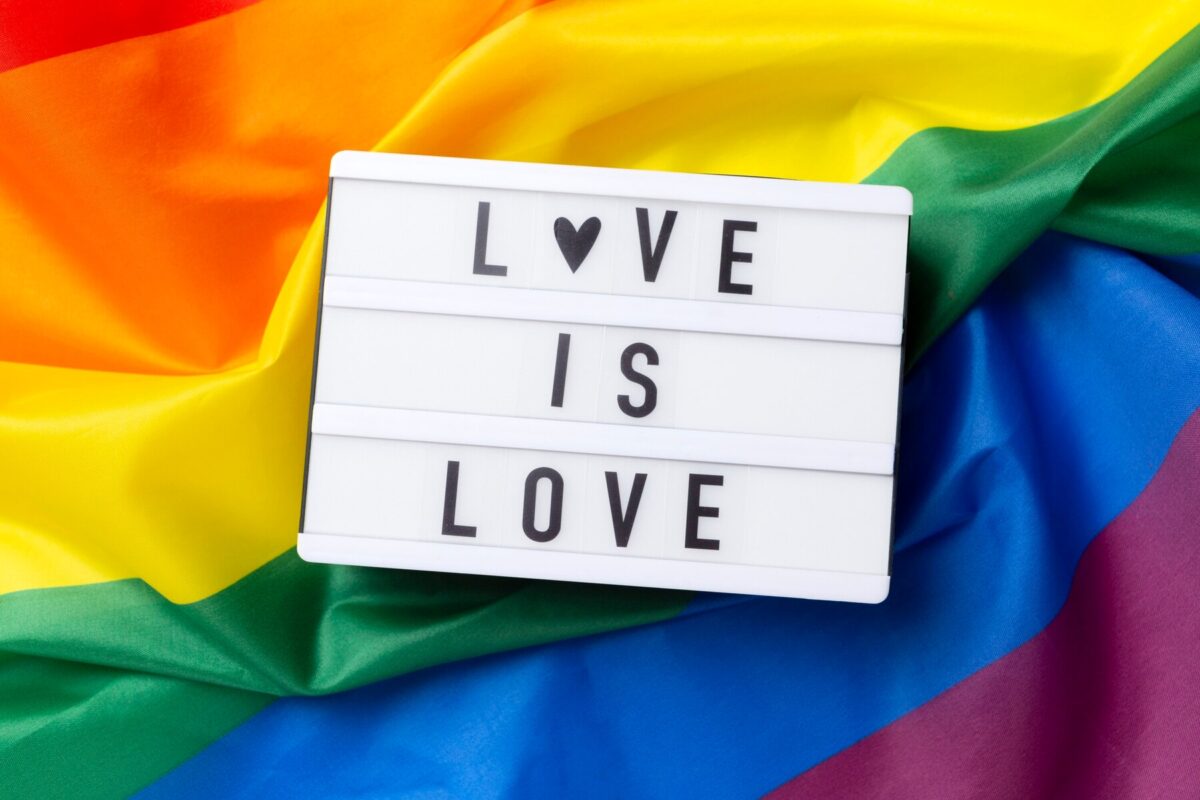February is LGBTIQ History Month – a time to shine a spotlight on the actions and achievements of members of the LGBTIQ community throughout history. While the recognition and celebration of history are global, it’s essential to acknowledge the unique experiences and challenges faced by LGBTIQ individuals in different regions, particularly in Eastern Europe and Central Asia (EECA).
The history of LGBTIQ rights and activism in EECA is complex and varied. Discrimination, violence, and harassment remain widespread, fueled by cultural, religious, and political factors. In some countries, laws targeting LGBTIQ individuals continue to exist, restricting their rights to freedom of expression, assembly, and association.
There are 57 organizations in the REAct system providing health services to members of the LGBTIQ community. In 2023 alone, 1,109 referrals were documented and this number remains among the leaders:
| Registered cases | Other countries | Ukraine |
| Key group (people, who use drugs) | 1279 | 707 |
| Key group (people living with HIV) | 1683 | 1152 |
| Key group (sex workers) | 1054 | 347 |
| Key group (LGBTIQ) | 1109 | 437 |
Main types of perpetrators (by countries where REAct works and for all years). As a rule, violence against victims is perpetrated by private individuals.
| Police | 516 |
| Family, relatives | 300 |
| Acquaintances | 173 |
| Hate group | 175 |
| Husband/wife, intimate partner | 137 |
| Other specialised doctor, NOT related to HIV/AIDS and TB | 101 |
| Client of sex worker | 82 |
| Employer | 104 |
| Representative of the same key group | 72 |
| Neighbours | 96 |
| AIDS center or other doctor related to HIV/AIDS | 65 |
| Business, shops, service sector | 56 |
| Hospital, inpatient facility | 57 |
| Homeowner or landowner | 42 |
| Special law enforcement services | 35 |
| Military, army | 25 |
| Political representatives | 21 |
| University | 21 |
| Migration service (state service | 15 |
| Border guards | 13 |
| Media and journalists | 13 |
| School | 10 |
Main types of violations (by countries where REAct operates and for all years)
| Hate speech, verbal abuse | 913 |
| Threatening, intimidation, harassment | 867 |
| Violence by individuals based on hatred | 571 |
| Extortion, blackmail | 260 |
| Public outing, defamation | 208 |
| Eviction, coercion to leave the residence | 188 |
| Arbitrary arrest or detention | 167 |
| Misuse of power by law enforcement | 165 |
| Other breach of privacy | 151 |
| Sexual assault/abuse | 148 |
| Domestic/intimate partner violence | 130 |
| Excessive use of force by law enforcement | 118 |
| Destruction of property, motivated by hatred | 108 |
| Dismissal, denial of employment | 99 |
| Denial of protection and investigation by the police | 81 |
| Refusal to provide hospital care and other medical service | 74 |
| Psychological mistreatment in public health facility | 68 |
Thus, in modern Tajikistan, representatives of the LGBTIQ community face serious violations of their rights. Detentions under Article 241 of the Criminal Code (distribution of pornography) have become more frequent in the country. The grounds for such charges are personal intimate photos found on the phones of the accused or intimate correspondence. Renata’s story is an important example of the continuing struggle for rights and freedom and emphasizes the need to support and protect those who face discrimination and persecution because of their gender and sexual identity.
Kazakhstan recorded an incident involving Danara, a 25-year-old queer woman and LGBTIQ activist. Her story was a powerful example of the struggle to ensure equal rights and non-discrimination in the workplace, regardless of their sexual orientation.
In Armenia, a trans woman, activist, and employee of a local NGO was attacked. Thanks to her courage and determination, her attacker was apprehended and a criminal case was opened. Her story served as a reminder that everyone can and should fight for their rights and the rights of others.
However, despite these challenges, there have been significant strides towards equality and acceptance in recent years. One of the key aspects of LGBTIQ history in this region is the resilience and courage of activists who fight tirelessly for their rights from grassroots movements to organized protests. To challenge discriminatory laws and societal attitudes. The visibility of LGBTIQ issues has increased thanks in part to the efforts of activists, organizations, and allies. Pride events, film festivals, and other cultural initiatives have helped to raise awareness and foster a sense of community among LGBTIQ individuals.
Moreover, there have been notable advances in terms of legal recognition and protection for LGBTIQ rights in certain countries. For example, Estonia has legalized same-sex partnerships, while others have introduced measures to combat discrimination based on sexual orientation and gender identity.
It’s also important to recognize the role of international organizations and human rights bodies in promoting LGBTIQ rights in EECA. The European Union, the Council of Europe, and the United Nations have all called on countries in the region to respect and protect the rights of LGBTIQ individuals. These efforts help to push for legislative reforms and provide support to local activists and organizations.
By standing in solidarity with LGBTIQ individuals and supporting their rights, it is worth noting that LGBTIQ History Month provides an opportunity to honor the achievements and contributions of community in EECA, while also acknowledging the challenges it continues to face. However through activism, advocacy, and solidarity, we can strive to create a world where everyone, regardless of sexual orientation or gender identity, can live with dignity, equality, and respect.
Also read:
Empowering social justice in Eastern Europe and Central Asia: a call to collective action


